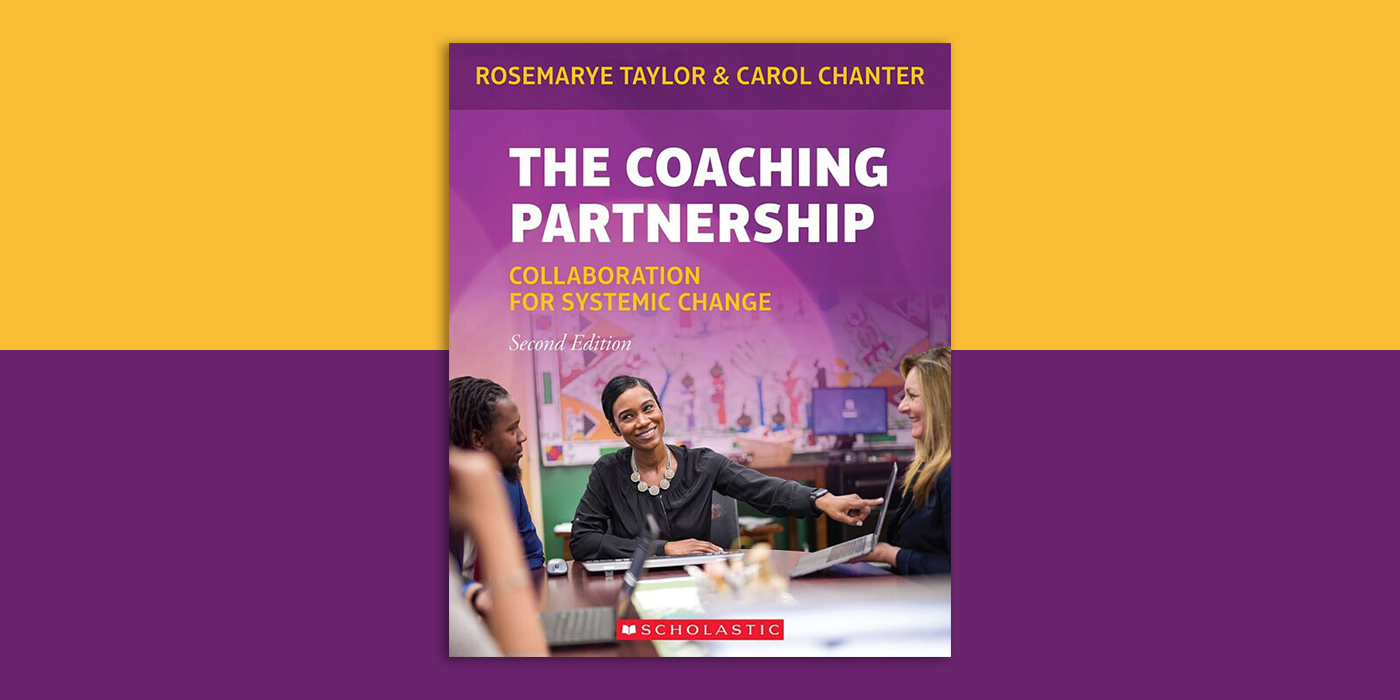When you’re open to new possibilities, new ways of thinking, and new ways of doing things, you open the door to higher achievement for students. This is generative thinking.
In our book, The Coaching Partnership, we discuss how generative thinking is a disposition that is the premise underpinning the relationship building, communication, coaching process, and continual development of expertise. Generative thinking encourages learning through inquiry so that the learner, either adult or student, owns the response. With ownership, the learner is more likely to act on the learning with the added benefit that the learning moves to long term memory for retrieval later. It is grounded in the belief that everyone can develop their thinking and their professional expertise (Puig & Froelich, 2011).
The generative dispositions brought to the coaching partnership demonstrate belief in the potential of and respect for others. Generative thinking is reflected in open-ended, inquiry-based professional practice, moving away from yes-or-no questions or directive responses (Puig & Froelich, 2011). By probing carefully with generative inquiry in the coaching environment, metacognition will be enhanced to continually develop expertise of adult learners and students.
How to Foster Generative Thinking in Others
How can coaches, mentors, learners, and administrators foster generative thinking? Professional behaviors develop in response to extended exposure to a particular culture of learning and result in one’s thinking dispositions, which are reflected in words and actions. If the cultural norm is for responses or actions to be considered from an objective evidence-based perspective and learners are encouraged to think about evidence and draw their own conclusions, then then a generative thinking culture is present. Coaches and administrators should model for teachers and teachers model for students the expectations of generative thinking.
It is up to you as teachers, coaches, mentors, and administrators to reveal the potential of every learner. By doing so, you create a culture that fosters development of generative thinking. You may find yourself asking more, listening more, and telling less with phrases like: I wonder …; I noticed; or what did you notice?
Here’s how it works:
- To develop a culture of inquiry and continuous improvement, create structures that provide time and opportunity. Encourage others to try out new learning, make mistakes risk free, and participate in self-reflection. Develop a safe environment to support generative thinking. Learning structures, such as lesson study, learning walks, peer collaboration, and coaching, can be opportunities for learners to practice new professional behaviors. In safe professional learning experiences, learners can meet challenges with support and without judgment.
- Modeling expectations is an effective means of encouraging adults and students to view themselves as capable learners. By modeling desirable dispositions and belief in learners’ abilities, you assist others in adopting the same beliefs and dispositions. Practice scenarios can generate thinking of potential solutions and professional behaviors. Sharing examples of changed thinking and asking open-ended questions also model generative thinking. Inquiry examples would be “What would happen if ___?” as opposed to stating “It would be better to ___.”
- Finally, by emphasizing the developmental nature of learning, highlighting the role and reward of hard work, and inviting participation of the learner, generative thinking will be the central idea of learning. When generative thinking is a foundational belief, it is meaningful and observable in professional practice.
Developing a culture of generative thinking takes time and effort by teachers, coaches, mentors, and administrators. However, the benefits for learners can extend far beyond the individual classroom, school, or professional experience.
To learn more about generative thinking and how coaching and mentoring can boost your professional effectiveness, you can purchase our book here.
About the authors:
Rosemarye (Rose) Taylor is Professor Emerita of Educational Leadership at the University of Central Florida (UCF). Her specialty is systematic leadership to improve student achievement preK–20, particularly with improved literacy. She collaborates across disciplines and borders to improve student learning and effectiveness of professionals in education and education-related industry.
Carol Chanter has over 35 years of experience in special education, general education, academic coaching, and school and district leadership. During the past 12 years, she has utilized this experience in her roles as Vice President, Technical and Implementation Services, Scholastic; Senior Vice President, Program Professional Services, Houghton Mifflin H court; Senior Vice President Professional Services, Achieve3000; and, most recently, as Senior Vice President Professional Learning Services, Scholastic, to liaise with teachers and leaders regarding best practices in program implementation, coaching, literacy, high-leverage instructional practices and school turnaround.
